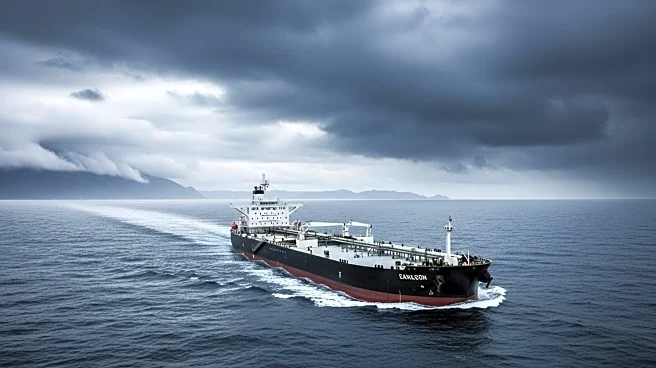What is the story about?
What's Happening?
A report by Bloomberg and United Against a Nuclear Iran has revealed that Iranian-origin crude oil is reaching China through alternative routes, despite sanctions. Malaysia, previously a major exporter to China, has reduced its exports following exposure to criticism, but Iranian oil is now being mislabeled as Malaysian or Indonesian. Ship-to-ship transfers in international waters off Johore are facilitating this trade, with fraudulent documents covering the conversion of Iranian oil into Indonesian oil. Despite official data, external analysts estimate that China received 1.45 million barrels per day of Iranian crude in the first eight months of 2025.
Why It's Important?
This development highlights the ongoing challenges in enforcing international sanctions against Iran. The ability of Iran to continue exporting oil to China, despite sanctions, undermines the effectiveness of these measures and poses a challenge to international regulatory bodies. It also reflects the adaptability of the oil market and the complexities involved in tracking and regulating oil shipments. The situation could have broader implications for global oil markets and geopolitical relations, particularly between the U.S., Iran, and China.
What's Next?
Authorities are likely to examine the fraudulent bills of lading and close existing loopholes, but the sanctions-breakers may continue to find new methods to circumvent restrictions. The ongoing cat-and-mouse game between regulators and those evading sanctions is expected to persist, with potential adjustments in international policies and enforcement strategies.
Beyond the Headlines
The situation raises ethical and legal questions about the enforcement of international sanctions and the role of global trade networks in facilitating or hindering compliance. It also underscores the need for improved monitoring and regulatory mechanisms to address such challenges effectively.
















